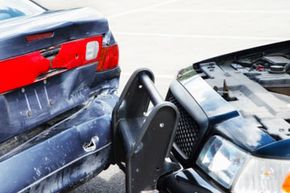It's no secret we live in a litigious society. People are only too happy to run down to their lawyers' offices and file lawsuits if they even remotely feel they've been wronged. So it's critical to protect yourself through liability insurance. Actually, liability insurance is any insurance you purchase to protect others against something you do -- hit and damage their cars, for example, or create a product they purchase that inadvertently results in an injury. So really, you're protecting others and yourself.
Because so many things can go wrong in our lives, there are many types of liability insurance. Here are a few of the more popular types, some of which are only applicable in a business setting:
Advertisement
- General liability: Covers bodily injury and property damage to others from an accident you cause.
- Directors and officers: Protects people against financial loss and injury caused by "wrongful" acts you committed, typically making poor management or governing decisions.
- Professional liability: Guards against any injuries another person receives due to your negligence in the way you provided a professional service, or by your failure to maintain professional standards. (For example, if you're a CPA who gave out bad advice that resulted in a hefty IRS penalty for your client.) Depending on your profession, this type of liability insurance may have another name; physicians, for example, call it medical malpractice insurance.
- Umbrella: Also called excess liability, umbrella insurance provides additional coverage for your home, auto and boat in the event a claim costs more than your homeowners, auto or boat insurance can cover. So if you cause a terrible car accident and the resulting claim exceeds the limits of your auto insurance, your umbrella will kick in to pay the rest of the bill.
- Product liability: Protects people from injuries caused by something you produce.
- Liquor liability. Covers bodily injury and property damage to others specifically because you had some role in contributing to the intoxication of another [source: Szerlip].
The two most common types of liability insurance from the above list are probably umbrella and general. People who have assets to protect usually purchase umbrella coverage, because if you're sued after a major accident and don't have enough protection, you can be forced to cash in your assets and maybe even give up some of your future earnings. General liability pertains to bodily injury and property damage that someone suffers due to your negligence, whether in your car, home or business. The most common type of general liability insurance is probably general auto liability, which most people are required to carry. Read on to find out more about this common coverage.
Advertisement




